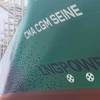Xeneta Expects Further Disruption in Container Rates
Further disruption in ocean freight rates expected despite best efforts from leading carriers, according to Xeneta Container Rates Alert.
Long-term contracted ocean freight rates for carriers continued their downward trend through the month of October, it pointed out.
The latest freight data from the XSI Public Indices report from Xeneta shows a continued drop in contracted freight rates as the industry heads into the key seasonal months.
Rates on a number of key routes have continued a steady downward slide since early summer but have yet to fall below the levels seen one year ago, nor at the start of this year.
The company’s XSI (Xeneta Shipping Index) which reports on the long-term contracted market, dropped a further 2.2% during October 2019 to reach 110.74 points, but this level remains 1.5% higher than one year ago (at the end of October 2018), and 2.2% higher than the levels reported at the start of this year.
According to chief executive Patrik Berglund the next few months will likely be critical in shaping contract negotiations on key trade lanes, with significant general (FAK) increases planned on the Far East-North Europe trade routes, as well as the transpacific routes for November 1st.
“Spot rates on these routes have continued to trend downwards, so carriers will be looking to set a more positive tone ahead of rate negotiations and the introduction of the new low-sulfur in fuel regulations in 2020 that could see an increase in bunker costs,” he says.
Despite the difficulties facing carriers, Berglund notes that Maersk has still been able to upgrade its full-year earnings (EBITDA) guidance from $5bn to between $5.4bn and 5.8bn. The Danish line attributes the improved prediction to reliability and capacity management, in addition to continued margin improvements. Some of this improvement would have come from a reduction in fuel prices, with IFO (Intermediate fuel oil) having steadily declined since April.
While the overall XSI Index showed a continued decrease the devil is in the detail when looking at more regional export and import data trends over the last year. Berglund notes that the current indices continue to look erratic, but the overall trend of a declining freight rate market will likely continue for a short time still despite carriers’ best efforts.
Economic and geopolitical instability, such as even more delays for the UK leaving Europe (Brexit) and the trade war between US and China reaching now into the end of the year season, will add more necessity for shippers and freight forwarders to keep a sharp eye on rates.











